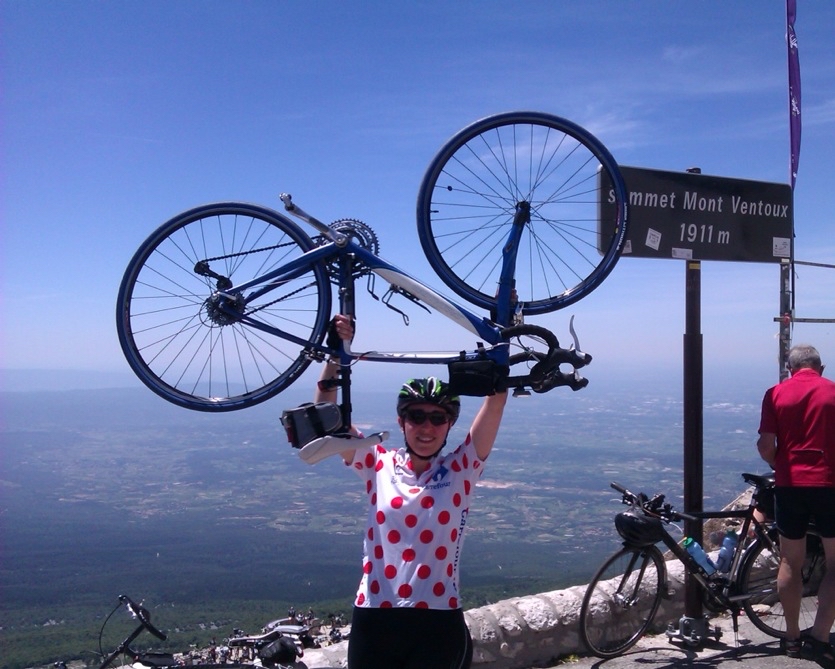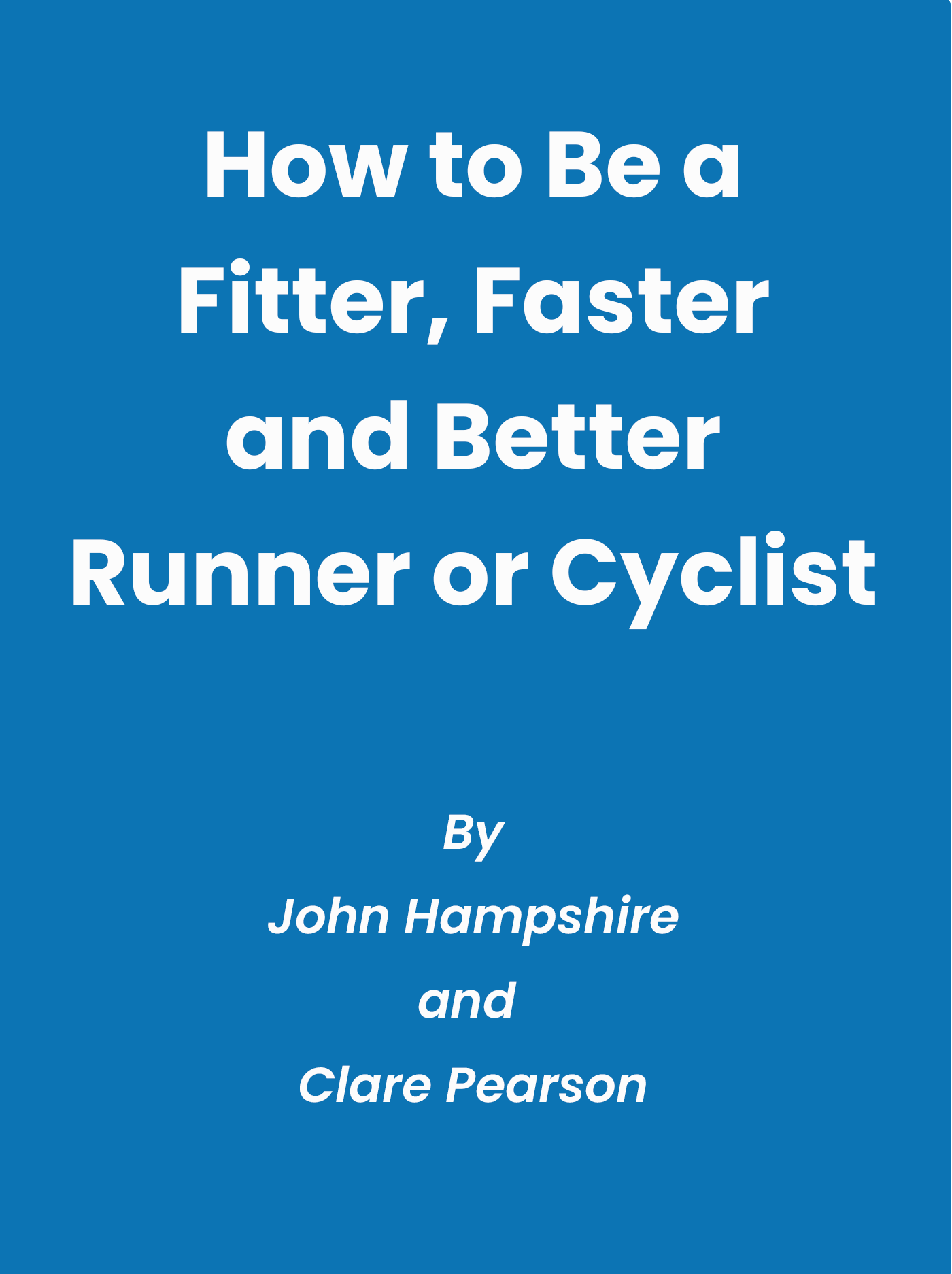How do I become a fitter, faster, better cyclist or runner (Chapter 1)?

Chapter 1: How do I get fitter, faster, better?
The basic principles of training for sport are simple and needn’t be complicated. Some of the theories are complicated but it isn’t necessary to understand these to achieve amazing things. What I plan to do is produce a simple guide to training and competing that is accessible yet provides the basic requirements for an athlete at any level.
If you only remember one thing – remember this:
Your body will adapt to whatever situation you place it in
This simply means that if you go for a run your body will get better at running, if you sit on the settee your body will adapt itself to sitting on the settee and if you play darts you will get better at playing darts. If you do too much of anything your body will do things to stop you doing it, if you cycle or run too much it will break down so you are so tired that you stop getting fitter and start getting slower.
Of course there are different aspects to each activity and the body is very good at adapting in specific ways, so if you run or cycle at a certain speed for a certain time, your body will get better at that. That means if you sprint you get better at sprinting and if you run or cycle slowly for a long time you get better at that. At first you just need to do the activity to get better so if it is running, you just need to go running for increasingly longer times and if you’re a cyclist, get out and ride your bike and your fitness will build naturally.
As you improve you need to work on specific things because your body and mind get better at each new activity quickly at first and then more slowly so there is then a need to do something a little different. An example might be that you have got so you can run for 5 kilometres or cycle 20 kilometres at a certain speed but you aren’t improving much so doing some short faster efforts of maybe 3 or 4 minutes with rests in between could be what you need, your body gets used to going faster; we call this interval training.
This may be starting to seem complicated and perhaps you are asking how will you decide what particular thing to do. Well that isn’t so difficult, it is just a case of thinking about what you want to do, your goal, and what you can do now, then looking at the difference to see how to move from one to another.
Warning: it is important to remember that your body can only change a small amount at a time and if you do too much you will probably get worse, very tired and possibly ill; then you may have to wait a long time before you can even get back to where you were. Don’t worry though, there are lots of ways to check how things are going and make sure you aren’t over doing it. One very important one is just think about how you are feeling deep down and what feels right… If you are not sure whether you should rest or train, it is often good to go and start something, and if you feel too tired after a few minutes, go home and rest instead.
So let’s get started:
What do you want to do? What is your goal?
Spend some time on this, make it realistic but challenging, there is no limit but it is important to remember that the harder the target the more sacrifices you may have to make in other aspects of your life.
For example, I have a friend who watched the Paralympics on television and decided she wanted to compete at the next one in 4 years time. She did it but she had to make a lot of serious changes to her life and become a full time athlete… those sacrifices were her decision and worked for her but may not be what you want so think it through.
Once you have a goal you need to figure out what you need to do to achieve it, when you want to achieve it, etc. Try to shape your goal with as much detail as possible so that it is clear. Then have a think about whether it is really what you want, make some adjustments if necessary and then repeat the process until you are happy with your goal. You can close your eyes and think about the things you will need to do and feel whether these are right for you.
When you are happy with your goal it is nice to spend some time thinking about how good it will be when you achieve it and how success will make the undoubted set backs and efforts worth it.
Sometimes it is nice to discuss it with a close and non-judgemental friend who can support you as you go along.
What next?
You need a bit more detail about how you are going to be successful in achieving your goal. That means you need to know as accurately as possible where you are now and compare it to where you want to be so you can decide what changes you need.
You have defined your goal so now you need to know what changes you need to make to get there; it is very important that you know as accurately as possible where you are now.
Note: A lot of people seem to forget this, you may have been a great athlete in the past but had some time off and be less fit than you were, so it is how fit you are now that counts. You can’t start from anywhere else and it is worth spending some time thinking about this. You can’t start from where you want to be if it is different from your present condition and if you try to, you are asking for trouble and almost certainly destined to an unhappy time.
You can do some relevant tests to see how your present condition compares to the condition you need to meet your goal. A good way to figure out where you are and where you aren’t, is to make a list of things you need to meet your goal.
These things could be:
- To be able to run or cycle at a certain speed for a given time
- Not to be ill on the day of your event
- To be in the right mood on the day of the event
- To have the right skills
- To have the right equipment, properly set up, tested and working well in the way you need it
- etc….
Make the list now…
You should now have a list that describes what things you have to put in place in some detail.
What you now need to know is the things that are necessary to ensure you meet your goal. For each of the items in the list, you need an estimate of where you are now based on the best information you have available. If you can do some sort of test then all the better, for instance:
- To be able to run or cycle at a certain speed for a given distance
- I can do 90% of the required speed for the required distance or go at the required speed for 50% of the required distance (based on time trials on <date 1> and <date2>)
- Not to be ill on the day of your event
- I am not ill now
- To be in the right mood on the day of the event
- I often get stressed and negative before a big event (note: this may be sporting or otherwise since they can be similar in psychological terms)
- To have the right skills
- If you are an off-road runner, this may be that you find you are always overtaken on rough ground or on down hills so note that down
- To have the right equipment, properly set up, tested and working well in the way you need it
- Maybe your goal is related to cycling and your gears aren’t working properly so note that down, or you feel uncomfortable after a short time so you don’t think the setup is correct
- etc…
Add all the detail you can now and if you need additional information, plan when and how to get it to complete your list as soon as you can.
So now you know how your present state compares to the state of things you feel are important to achieve your goal.
You can now work out how to make the changes you need.
Technical point: it takes about 6 weeks to make a change to ourselves in training theory. It is also most effective to only try and change one or perhaps two things in each macrocycle.
The technical point above is very important, it means you may not be able to work on everything at once but that isn’t necessarily a bad thing. It isn’t necessarily very restrictive either because things like sorting out equipment, practicing simple skills, healthy living and eating are all things that can be done outside of the physiological training. These things are really important, I like to think of them as free gains, you don’t have to go out training to get fitter but they usually result in better performance.
For example, if you are a cyclist and your bike isn’t set up properly you are wasting energy and may even be getting yourself injured. Make sure to take advantage of the free gains. They can make an instant difference.
So specifically what will you work on: choose
- the most important physical need – maybe to be able to maintain your target speed for the whole distance; and
- the most important psychological need – maybe being in a positive frame of mind for the goal event.
At this point, it is also useful to write a few things that you currently have that are important to maintain, like good stamina, a good sprint, an ability to read the competition, etc. You will want to include a small amount of these things in your plan so you don’t lose these key abilities.
That is it for now, in the next chapter we will look at putting a plan together to meet your goal. If you have completed all the above, done some tests to make sure you know your current state in as much detail as possible and clearly visualised your goal, that has been a lot of work and even though it might not feel like it; a big step towards success. Your mind is probably the most important thing for success and you have gone a long way to putting a successful mindset in place.
Have fun and please let me know what you think.
Tags:
cycling, Cycling Training, Mountain Running, Heart Rate Monitor, Cycle Training, Bikepacking, ebook, Coaching, Mountain BikingApril 1, 2019

Comments